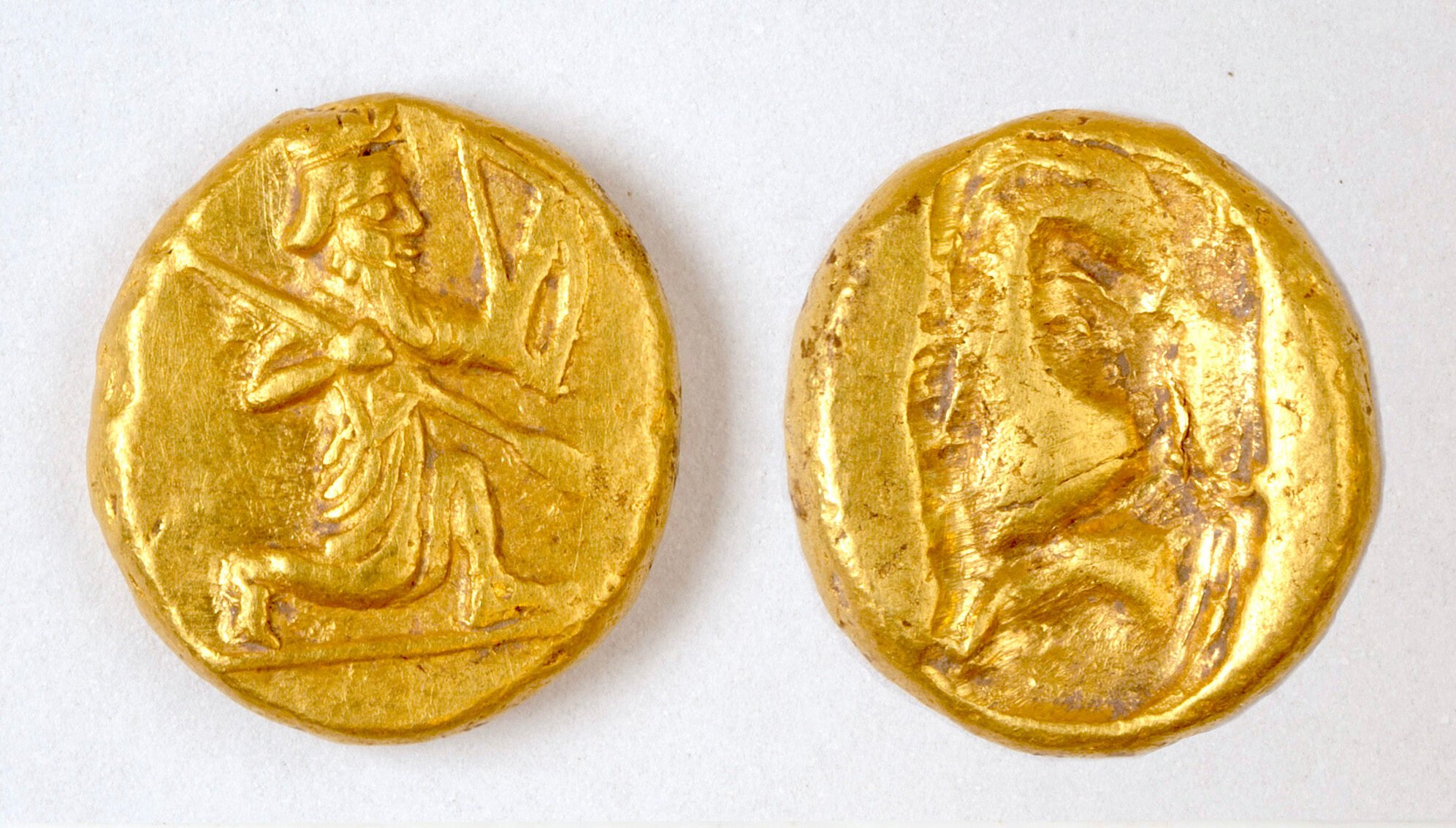
Archaeologists from the University of Michigan, Brown University, and Sinop University have found a pot of gold coins while surveying the ruins of Notion, an ancient Greek colony in western Turkey. The coins, called darics, are dated to the 5th century B.C.E., and likely used to pay Greek and barbarian mercenaries involved in military operations around the contested city.
Originating in the Persian Empire, darics first showed up in the 6th century B.C.E. and remained in use until the rise of Macedonian conqueror Alexander the Great three centuries later. Like other ancient currencies, darics can help piece together the history of the societies that used them.
Unfortunately, this is easier said than done. As Christopher Ratté, a professor at University of Michigan and director of the Notion Archaeological Project, explained, few coins are directly found by archaeologists. By the time the artifacts finally end up in the hands of researchers, after passing through underground markets, obscure antique stores, and private owners, their provenance is often unknown.
“An archaeological find without contextual information is like a person suffering from amnesia, a person without memories,” Ratté said. “It is still interesting and important, but the loss of knowledge is incalculable.”
The coins at Notion are an exception.
“In the case of this hoard, we know precisely where it was found, and we have a great deal of circumstantial evidence for when it was deposited.” Because of their value, Ratté speculated whoever buried the coins encountered “only the gravest misfortune” before they could retrieve them.
Found in a small pot underneath the courtyard of a Hellenistic mansion, the gold coins are engraved with the image of a kneeling archer. According to Ratté, the design of the coins is typical of Persian darics, which changed little over the course of the currency’s lifespan, and were likely minted in the Persian city of Sardis, 60 miles north of Notion.
An aerial view of the house showing the find spot of the coins as well as other artifacts. Photo: Notion Archaeological Project.
How the coins ended up in Notion around the time that they did remains unclear. While incorporated into the Persian Empire in the 6th century B.C.E., the city enjoyed over a century of independence before rejoining the empire in the early fourth century B.C.E. Notion’s geopolitical instability suggests that the coins may have found their way to the city to pay mercenary troops fighting over its future.
According to the Greek historian Xenophon, one daric constituted the monthly pay of a single soldier. Perhaps these troops fought for Persian sympathizers from the nearby town of Colophon, who occupied Notion between 430 and 427 B.C.E., or for Paches, an Athenian general who battled pro-Persian mercenaries.
Hopefully, future discoveries at Notion will yield definitive answers. Excavations at the city, which started in 2022, are just beginning, and should produce a clearer picture of this tumultuous point in history. For the moment, Turkey’s Ministry of Culture and Tourism has announced that the gold coins, currently stored at the Ephesus Archaeological Museum, will go on public display.